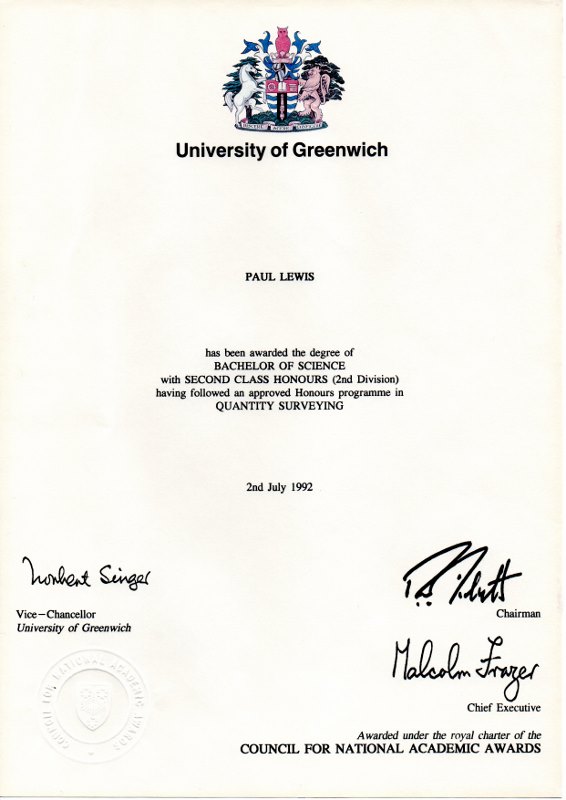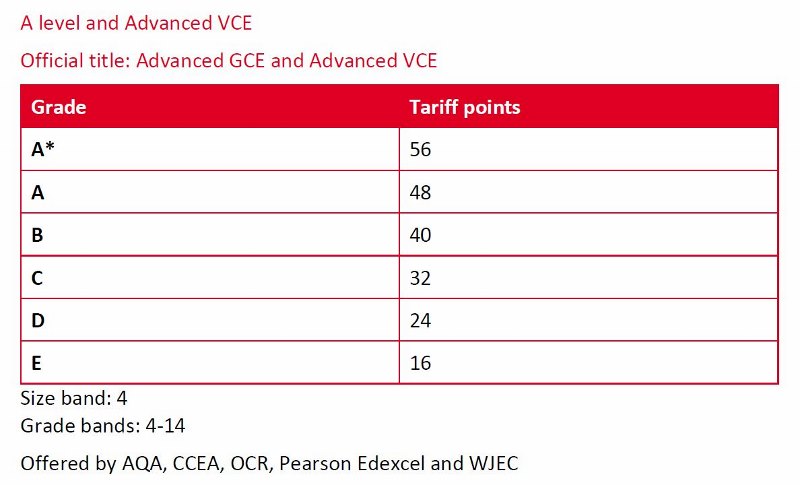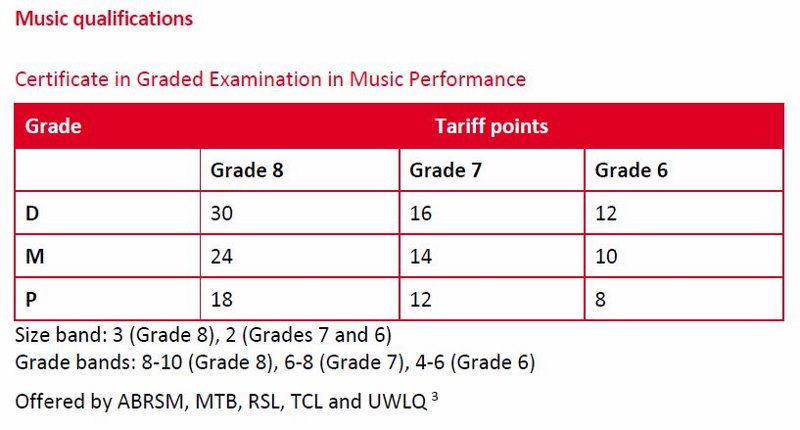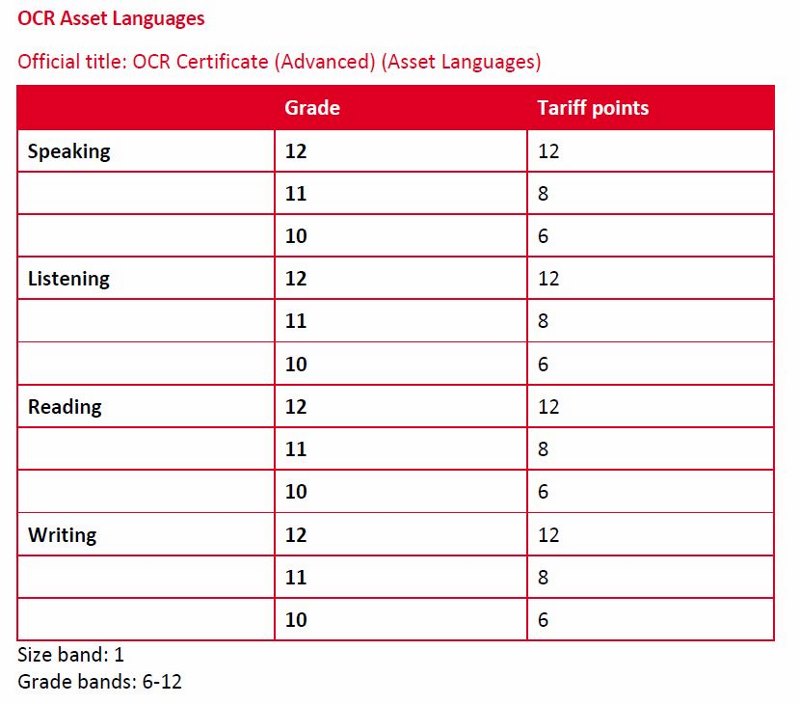Around this time last year, and when my older daughter, Emma, was thinking about such things, I wrote a post asking whether it was worth doing DofE Gold, to get into University. To which the answer was: yes, but only for the personal growth. DofE Gold does not afford you any extra UCAS points, to help boost your university application in that way.
UCAS, the Universities and Colleges Admissions Service, is the organisation that operates the application process to UK universities. There are an enormous number of different awards and qualifications, offered by innumerable organisations all over the World, which can then be used to apply for a course at a UK university. What UCAS does is standardise all of these, by giving them a points value, or tariff.
Emma duly completed her DofE Gold, and is attending the University of Bath to study Pharmacy. Bath, like quite a lot of universities, bases its offers on grades, not UCAS points. As such, getting extra UCAS points wouldn’t have helped get Emma into Bath. That said, she drew on her DofE experiences a lot, during the interview process. Which left her in no doubt that it was worth doing the Gold award.
My younger daughter, Ceri, is planning to attend the University of the West of England (UWE), in Bristol, to study Architecture. In an ideal world, she’ll start the course in the 2021 academic year. Unfortunately, due to the coronavirus pandemic, we are not currently living in an ideal world. Which means that Ceri might opt for a gap year, instead. Indeed, a lot of students seem to be thinking along these lines.
Furthermore, there are a number of students who opted to take a gap year over the 2020 academic year, thus avoiding the disruption that Emma and her peers are presently having to battle through. This means that the courses in both the 2021 and 2022 academic years have the potential to be oversubscribed. If this turns out to be the case, the easiest route for universities to take is to increase their course entry requirements…
Which is going to make life even more difficult, all round.
Particularly for students in Ceri’s academic year, who have had both of their college years disrupted. How can anyone be remotely sure what grades that they are going to get, having missed that much time at college? This whole thing has the potential to be a real mess.
The one thing that might work in Ceri’s favour is that UWE uses UCAS points to set its course entry requirements. Something that, potentially, gives Ceri the opportunity to get extra UCAS points, and boost her standing with the university.
So, the question is, how do you get the extra UCAS points to get you into your university? And, which of these routes to extra UCAS points give you the best return on your time and energy, while still boosting your appeal to your chosen university?
If Ceri does take a gap year, and if her university doesn’t increase the size of the course intake, the extra UCAS points she earns during this time might make all the difference…
However, there are so many qualifications offered by UCAS, that I’m going to have to oversimplify things a bit. Particularly for the bench mark qualifications… For which I apologise in advance.
UCAS tariff points are based on, ‘Benchmark Qualifications’. These benchmarks, in essence, are the A Level grades offered in a great many British schools, and are as follows:
As you can see, the lowest grade A Level is worth 16 points. Each grade higher than an ‘E’ is worth an additional 8 tariff points.
In reality, then, every extra 8 UCAS points you can earn will increase your results by one grade, in the eyes of your university.
The question then becomes: how many extra grades do you think will be useful? And what is the best way to go about getting them.
If you’re academically minded, the logical choice would be to take 4 A Levels, right?
Oddly enough, no.
No UK university will ask for 4 A levels. In fact, the course entry requirements will always be based on 3 A levels. Even at Oxford and Cambridge. As such, a lot of Sixth Form Colleges won’t let students take 4 A Levels, because it can actually be counterproductive:
Your top priority should be getting the best possible grades in three subjects – if taking four would stretch you too thinly then it’s counterproductive. Yes, AAAA would be a great result but if your offer is A*AA then you’d still have missed the grades.
https://targetcareers.co.uk/careers-advice/a-level-choices/1034462-should-i-take-four-a-levels
Which isn’t to say that there aren’t any academic routes to get you extra UCAS points for your university. There are. I’ll come back to them shortly. And then move on to the non-academic options.
It’s important to remember that it’s only worth getting extra UCAS points, if the university that you are applying for uses the UCAS tariff to set its course entry requirements. Because a lot of universities are only interested in grades. So, how do you know whether the university you’re applying for uses UCAS tariffs?
In my own experience, with my two daughters, I noted that Bath Uni uses grades, and UWE uses UCAS tariffs. Which made me wonder whether it was the former Polytechnics that were using the UCAS points tariff system.
Polytechnics were degree-awarding bodies for vocational courses. They originally focused on STEM subjects and Engineering. Universities, meanwhile, were originally focused on purely academic subjects. Over time, the lines between the two sets of organisations blurred so much that, in 1992, they all became universities.
Anyway, following my theory, I checked out the Biology undergraduate degree course requirements for a few former polytechnics:
- Greenwich University (formally Thames Polytechnic)
- Nottingham Trent University (formally Trent Polytechnic)
- Oxford Brookes (formally Oxford Polytechnic)
- University of the West of England (formally Bristol Polytechnic)
And all four of them listed their course entry requirements in UCAS points.
Which isn’t to say that all former Polys offer their courses in UCAS points. This is just a sample that I could remember off the top of my head… And the place I spent three years doing a bachelors degree in Quantity Surveying: Thames Polytechnic.
But I graduated in 1992… Which means that, despite never having set foot inside ‘Greenwich University’, I still have a degree from the place. Strange how things work out.

Anyway, my feeling is that the former Polytechnics are most likely to offer their course requirements in UCAS points. To which end, you can find a list of former UK Polytechnics, HERE.
Which just leaves the burning issue of: where you get your extra UCAS points, to keep your university happy.
As I’ve mentioned before, the options are staggering. The 2021 UCAS Tariff Tables is a document that runs to 203 pages in length. You can download a pdf of it HERE.
Outside of the academic listings, the largest way to earn UCAS points is through professional qualifications. These are predominantly level 3 awards, certificates and diplomas. There are far too many of them to go into detail. And, the vast majority of students are unlikely to gain professional qualifications while still at school and college. If, however, you have managed this, or you’re a mature student, the awarding bodies include:
And so many more… If you have a level 3 qualification, whatever it is, it can’t hurt to look for it in the Tariff Tables.
But, most students go to university directly after college. And, many of the students who don’t go directly from college, go after a gap year. All these students have one thing in common; they’re teenagers…
So, let’s concentrate on those items that are listed in the Tariff Tables, which are also achievable before the age of 20, while in full time education (or with one gap year):
Academic Route
Advanced Extension Award (AEA)
The AEA was a replacement for the old S Level award. However, with the introduction of the A* grade at A Level, the AEA has been mostly phased out. The only exception being: Mathematics.
For the time being, the top 10% of maths students are eligible for the AEA. The extra UCAS points you can take to your university with this award are:
- Distinction: 14 points
- Merit: 12 points
If you’re taking a maths A Level, the AEA is well worth looking at because:
There is no additional teaching content for Edexcel AEA Mathematics, only an additional exam on the A level Mathematics content you have already learnt.
https://qualifications.pearson.com/en/qualifications/edexcel-a-levels/about/aea-qualifications.html
Basically, you can get the equivalent of between one and two extra A Level grades, simply by sitting another exam.

By Albeiro Rodas – Own work, Public Domain, https://commons.wikimedia.org/w/index.php?curid=3474875
Extended Project Qualification (EPQ)
An EPQ is available to all A Level students. A student may submit an Extended Project on the topic of their choice, providing it can be shown to be academically useful.
It takes the form of either a dissertation (5,000 words being a common guideline) or a number of other forms: a musical or dramatical composition, report or artefact, backed up with paperwork.
https://en.wikipedia.org/wiki/Extended_Project_Qualification
To put it into some context, this post will be more than three quarters the length of an EPQ dissertation, at around 3,900 words. Admittedly, there is more to an EPQ than just the final project. However, the amount of work necessary to complete an EPQ is a lot less than that needed to complete half an A Level.
And that’s what an EPQ is worth: half an A Level!
As such, I think that doing an EPQ, if you’re academic minded and looking for extra UCAS points for university, is a given. So much so that I’ll do a dedicated post on EPQs, in the coming months. In the meantime, if you want to read up more about EPQs, you can visit the relevant UCAS page: HERE.
It is also worth noting that some of the universities, which use grades to set their course entry requirements, will also recognise and accept an EPQ.
Personal Development Route
These are alternatives to the DofE Gold award. They will give you the similar levels of personal development, while also providing extra UCAS points for your university. This type of qualification is non academic. Which is to say it is extracurricular, instead of super-curricular.
ASDAN
The Award Scheme Development and Accreditation Network (ASDAN) is a Bristol based charity and awarding organisation, which started life as a UWE research project.
[ASDAN] provides curriculum programmes and qualifications to help young people develop knowledge and skills for learning, work and life.https://en.wikipedia.org/wiki/ASDAN
ASDAN offers a selection of qualifications that carry UCAS tariff points:
- Certificate of Personal Effectiveness (CoPE), which offers 16 UCAS points for 150 hours of guided learning, chosen from a selection of modules
- Award of Personal Effectiveness (AoPE), which offers 8 UCAS points for 8 or 9 “curriculum credits’ worth of challenges”, which will take 80 to 90 hours
- Wider Key Skills, which carry 6 points each, and take between 30 and 40 guided learning hours to complete

Image by Gerd Altmann from Pixabay
CCEA
The Council for Curriculum, Certification and Assessment (CCEA) is a non-departmental public body of the Department of Education (Northern Ireland).
The CCEA offers a Certificate of Personal Effectiveness, which carries 16 UCAS tariff points, for 150 hours of guided learning.
Youth Scotland
Youth Scotland is the national charity for supporting and delivering youth work in the community. They are the largest national youth work organisation in Scotland. Youth Scotland offers a range of Youth Achievement Awards.
The Gold award carries 14 UCAS tariff points, and will take 120 hours to complete:
Youth Achievement Awards are inclusive and suitable for young people with a wide range of abilities and interests. They are easy to use and incorporate into your existing or planned activities. They are delivered in a range of settings including youth and community projects, schools and colleges.
https://www.youthscotland.org.uk/awards/youth-achievement-awards/
These three organisations all provide paths to getting the equivalent of 2 A level grades, through awards for personal development. If you’re looking to complete one of these options within a year, it’s only a commitment of 3 hours of your time, a week…
And you get all that personal development experience, which university interviewers like so much…
Which means that ASDAN, and its contemporaries, will also get a dedicated post…
Music Route
Music Performance
Virtually all children will play a musical instrument during their schooling, even if it’s only during music lessons. Quite a high proportion of children will also take up a musical instrument, to learn to play outside of school. Often at the insistence of their parents! I, for example, got stitched up with the recorder, but got nowhere with it. My wife, Julie, passed a couple of exams with the flute. Both Emma and Ceri were then encouraged to take up the flute during their schooldays. They each, also, passed a couple of exams.
But, a ‘couple of exams’ is not enough…
But pass six exams, and get to Grade 6, and the UCAS points start pouring in. Even a Pass at Grade 6, is worth 8 points: the equivalent of an extra A Level grade. A Distinction at Grade 7, will net you two extra A Level grades. And a Merit at Grade 8 is three extra A Level grades. Enough to turn a BBB into an AAA!
So, if you’ve got a child who’s interested in a musical instrument, particularly at a young age, give them all the encouragement and support you can. Whatever the musical instrument might be… Because a Distinction at Grade 8, Drums, is worth 30 UCAS points – that’s only 2 points off a C grade at A Level…
Music Theory
There is also an equivalent set of options for Music Theory. The tariff points for Music Theory are exactly half those of Music Performance, in Grades 6 and 7. However, the points for Music Theory, in Grade 8, are only:
- 10 for a Distinction
- 9 for a Merit
- 8 for a Pass
More information can be found in the ABRSM (Associated Board of the Royal Schools of Music) Wikipedia page.
Other Routes
These are a variety of qualifications that I picked out, as I waded through the Tariff Tables. A lot of these are somewhat opportunistic in nature…
And, much like Music Route, they tend to rely on an existing activity that has been going on for a considerable period of time. Most of these aren’t really the sort of thing that you can cram in at the last minute. Or even in a gap year.
British Sign Language
Signature is the leading award body for British Sign Language and deaf communication qualifications. If you are already able to Sign, or are proficient in other forms of deaf communication techniques, it might be worth getting certified for it. Signature offers a range of certificates that carry either a tariff of 8 or 16 UCAS points. The list is on page 145 of the Tariff Tables.
Debating
Now, this is an example of something that can be done as a one off, during college, with no prior experience. The English Speaking Board offers a Level 3 Award in Debating.
The Award will cost around £46, for 15 hours of guided learning. The total qualification time is 120 hours, and carries UCAS points as follows:
- Distinction – 12 points
- Merit – 8 points
- Pass – 4 points
So, it looks like you pay your money and you take your chances. If you want to give it a go, you can find more details HERE.

Drama (Speech and Drama)
For those who are into acting, drama, performance and the like, there are a couple of potential options available to you.
- Graded qualifications in Speech and Drama. These are offered by a number of organisations, like Trinity College London, and offer an identical set of points to those offered in the Music Route, above.
- Speech and Drama: Performance Studies. This is only offered by LAMDA, and has its own allocation of UCAS points:
- Distinction – 24 points
- Merit – 16 points
- Pass – 8 points
So, once again, there is the potential of an awful lot of extra UCAS points with which to impress your university. But only if you’ve been pursuing this field for a long time. It’s not the sort of thing you can jump in to at the last minute.
Horse Riding
If you are into horse riding, and have been for some time, the British Horse Society offers a selection of certificates:
- EQL Level 3 Certificate in BHS Stage 3 Horse Knowledge and Care – 8 tariff points
- BHS Level 3 Certificate in Stage 3 Horse Knowledge, Care and Riding – 8 tariff points
- EQL Level 3 Certificate in BHS Preliminary Teaching of Horse Riding – 16 tariff points
- EQL Level 3 Certificate in BHS Level 3 Preliminary Teacher’s Certificate (Equine Coach) – 16 tariff points
The latter two qualifications are related to teaching horse riding. But if your competence level is sufficiently high, and you have the opportunity, it’s worth considering. There is the potential for a lot of extra UCAS points to take to your university.
Languages
If you have a second language, then the OCR Certificate in Asset Languages seems something that is worth investigating. I mean, I know that there are UCAS points available for Asset Languages, because of this table:
But what I can’t find is the corresponding access to this information on the OCR site. There is a draft document about it HERE. But that’s all I can unearth…
Look, there are potentially masses of extra UCAS points to take to university…
If you have a second language, I’d highly recommend looking into this further.
Photography
For those who are actively into photography, there is a course suitable for 16-19 year olds. NCFE, the organisation formally known as the Northern Council for Further Education, offers a Level 3 Certificate in Photography.
Getting this certificate will not be quick or easy. Or, most likely, cheap…! You may well need a level 2 certificate before you can start level 3, although this is not essential. Either way, to get on the level 3 course, you will have to be very experienced with a camera.
The course involves 260 hours of total qualification time, including 165 guided learning hours. Achieving the level 3 certificate, however, comes with 24 UCAS points. A full 3 grades at A Level. So, if you’re already well into photography, this might be for you.
Sport and Coaching
This might apply to you, if you’ve been actively participating in sport for a long time. Or you’re part of a Sports College secondary school/sixth form college. And, in either case, more so if you’ve got involved in coaching. You may well be able to formalise your enjoyment of your chosen sport, into a certificate that carries UCAS points.
A couple of organisations offer a range of Level 3 awards, which carry at least 16 extra UCAS points to take to university:
- Sports Leaders UK
- Award in Higher Sports Leadership – 16 tariff points
- Certificate in Higher Sports Leadership (QCF) – 16 tariff points
- Qualification in Sports Leadership – 16 tariff points
- 1st4Sport
- Certificate in Achieving Excellence in Sports Performance – 16 tariff points
- Certificate in Coaching Tennis – 16 tariff points
- Level 3 Certificate in Understanding Sports Performance – 24 tariff points
- VTCT
- Level 3 National Certificate in Sport and Exercise Sciences (182 guided learning hours)
- Distinction Plus – 28 points
- Distinction – 24 points
- Merit – 16 points
- Pass – 8 points
- Level 3 National Certificate in Sport and Exercise Sciences (182 guided learning hours)
There are plenty of options there. Too many, in fact, for me to fully investigate each one. As an example, though, I will give the time requirements for the Sports Leaders Sports Leadership award:
- Total qualification time = 126 hours
- Guided Learning = 60 hours
- Demonstration of Leadership = 30 hours
And 16 UCAS points for 126 hours is not a bad return.

Photo by Nelka on Unsplash
Teaching English as a Foreign Language
This is another one that is a stand alone qualification. It is the sort of thing that should appeal to anyone with plans of taking a foreign tour at some point in the future. The fabled, World Tour…
Teaching English as a Foreign Language, or TEFL, offers a range of courses. They are aimed at allowing you, as an English speaker, to teach English to non English speakers. The qualifications are internationally recognised, and would allow you to pick up work in foreign countries.
Each GA Level 3 TEFL Award brings with it 8 extra UCAS points for your university:
- Principles and Practices of Lesson Planning (Teaching English as a Foreign Language) (TEFL) (i-to-i) (603/3147/1)
- Teaching Business English (Teaching English as a Foreign Language) (TEFL) (i-to-i) (603/3144/6)
- Awareness of Grammar for Teaching English as a Foreign Language (TEFL) (i-to-i) (603/3141/0)
- Teaching English One-to-One (Teaching English as a Foreign Language) (TEFL) (i-to-i) (603/3145/8)
- Teaching English to Young Learners (Teaching English as a Foreign Language) (TEFL) (i-to-i) (603/3146/X)
- Certificate in Teaching English as a Foreign Language (TEFL) (i-to-i) (603/0150/8)
The total qualification time is likely to be at least 100 hours. This is the minimum requirement for most private language schools. The requirement in China is for a minimum of 120 hours. An example qualification specification can be found HERE.
Conclusion
A lot of these routes to extra UCAS points are not realistically available for most people to take up in the year before university. For many of them, you have to have been participating in the qualifying activity for a number of years. For example: music, drama, photography, etc.
But there are a number of options for extra UCAS points that can be gained in the run up to university. And they typically have different time to tariff point ratios…
The academic options seem to offer the best returns. The AEA in Maths can gather 14 points from a couple of hours in an exam. The EPQ, meanwhile, can be worth as much as 28 points, from an input of around 56 hours. Or one extra UCAS point every two hours of effort.
The non-academic options, like ASDAN, have a lower points return but come with added benefits. At 150 hours for 16 points, you’re looking at close to one extra UCAS point for every 10 hours of effort. However, you do get a personal development experience similar to that which you would experience with the DofE Gold award. And those experiences are incredibly valuable for your university application process, particularly in terms of personal statements and interviews.
The debating qualification clocks in at around this ‘one extra UCAS point for every 10 hours effort’ level. As does the TEFL, providing you get two of the awards.
And, of course, there’s no reason why you can’t take on more than one of these options. Especially if you’re taking a gap year…
To finish, then, an EPQ is always worth considering. Also, if you’re tempted by the DofE Gold award, then something like a CoPE might be a better fit. Certainly if you’re planning on attending a university that uses UCAS tariff points to set its course entry requirements. Furthermore, if you have an existing skill, talent or passion, check to see if it might afford you extra UCAS points for your university application.
So, there are plenty of ways to get extra UCAS points for university. It’s just a question of which one is the best fit for you.



